SuperCollider
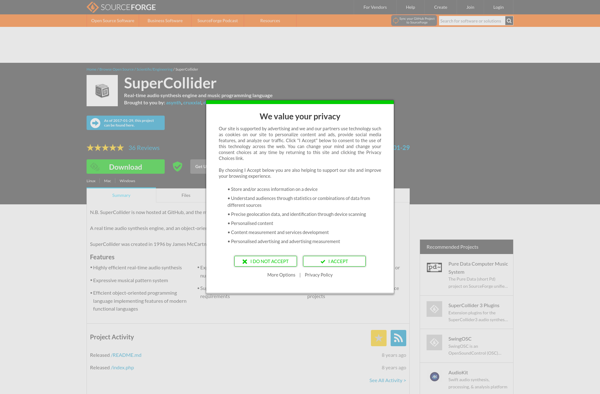
SuperCollider: Open Source Platform for Audio Synthesis
SuperCollider is an open source platform for audio synthesis and algorithmic composition, featuring a programming language for real time audio synthesis and processing, and an interpreter for writing applications that connect and control synth processes.
What is SuperCollider?
SuperCollider is an open source audio synthesis and algorithmic composition application originally released in 1996 by James McCartney. It features two main components - a unique programming language designed for real time audio synthesis and processing, and an interpreter for writing applications to control audio processes.
The SuperCollider language (often abbreviated to SC or sclang) allows users to manipulate sound in real time by sending messages like play, pause, setFrequency, etc to synthesis processes called Synths. Synths can generate and process audio using algorithms like oscillators, filters, delays, granular synthesis and more. The language includes advanced features like closures, mixins, functional programming concepts and OOP support.
The SuperCollider interpreter (scsynth) runs Synth processes according to a scheme specified by the user. It features real time scheduling of Synths, buses to facilitate inter-process audio routing and sample-accurate control, allowing precise synchronization of events. The interpreter and language connect via Open Sound Control (OSC), providing great flexibility.
Together, sclang and scsynth allow users to create anything from simple oscillators to huge swirling masses of sound pulses. SuperCollider enables exploration of new sonic territories through live coding (writing code that generates/modifies sound in real time). It has become popular in computer music and algorave scenes by providing endless possibilities for experimentation.
SuperCollider Features
Features
- Real-time audio synthesis and processing
- Programming language for sound generation and effects
- Graphical user interface for designing synth graphs
- Extensive library of audio analysis and manipulation classes
- Integration with other programming languages like Python and C++
- Cross-platform (macOS, Windows, Linux)
Pricing
- Open Source
Pros
Cons
Official Links
Reviews & Ratings
Login to ReviewThe Best SuperCollider Alternatives
Top Audio & Music and Audio Synthesis & Processing and other similar apps like SuperCollider
Here are some alternatives to SuperCollider:
Suggest an alternative ❐Max/MSP
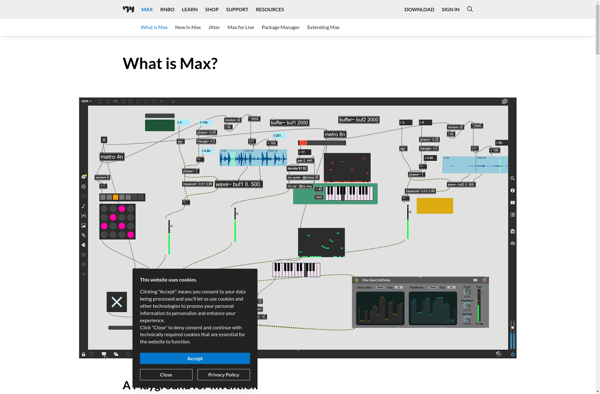
VCV Rack
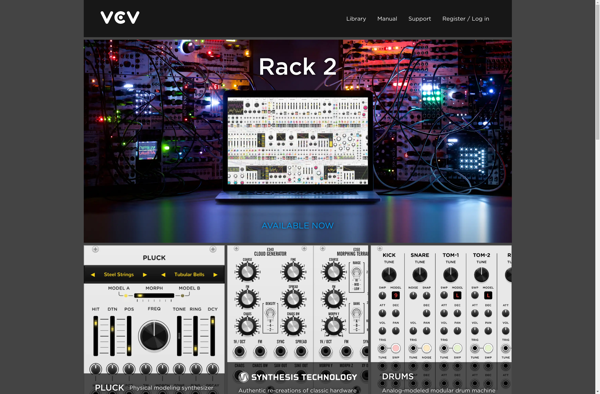
Overtone
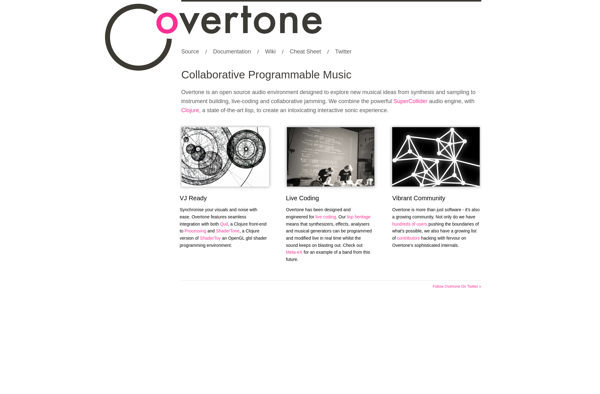
Sonic Pi
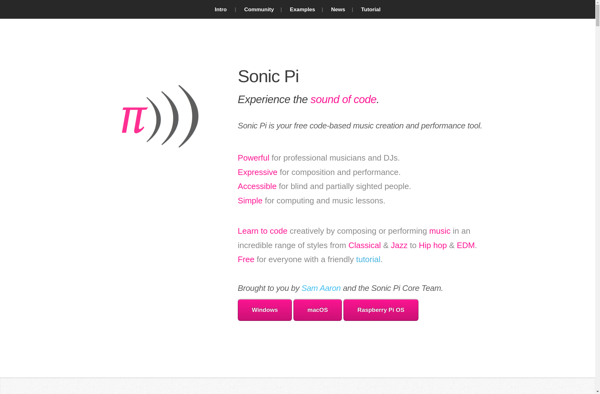
Synthesine
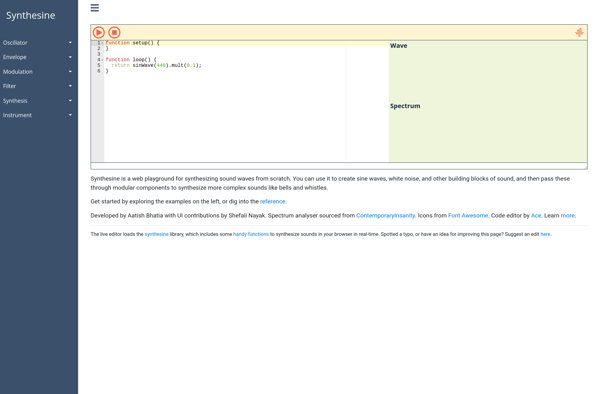
Klangmeister

NimSynth
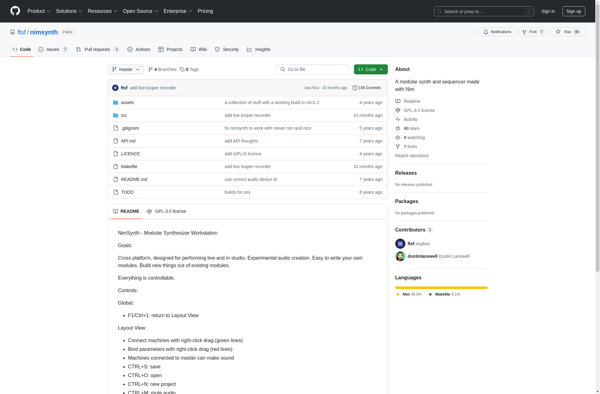
Axiom synthesizer
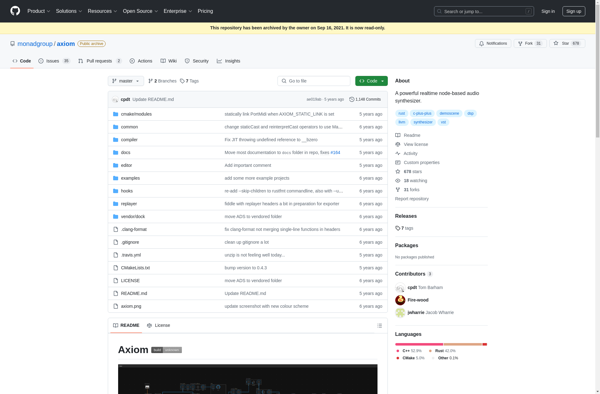
Pure Data
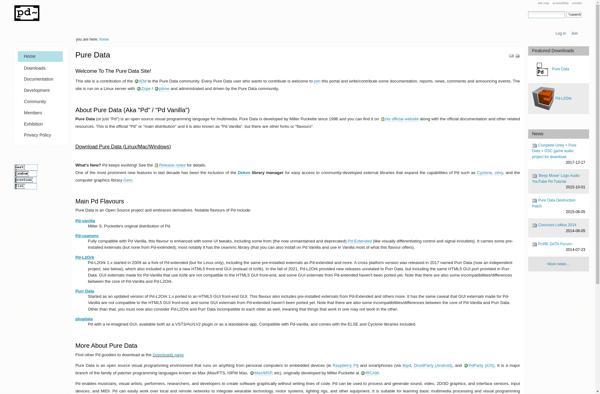
Nyquist
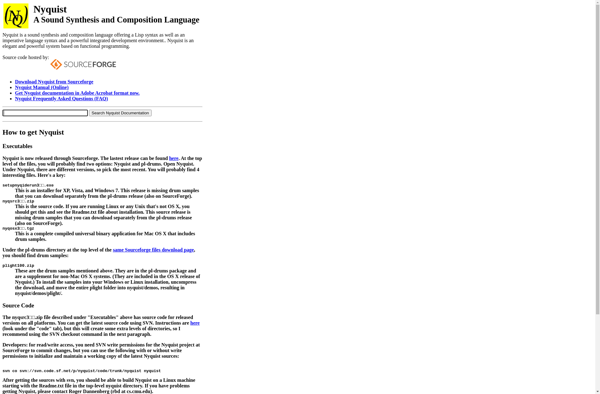
Hexen Modular Synthesizer

SunVox
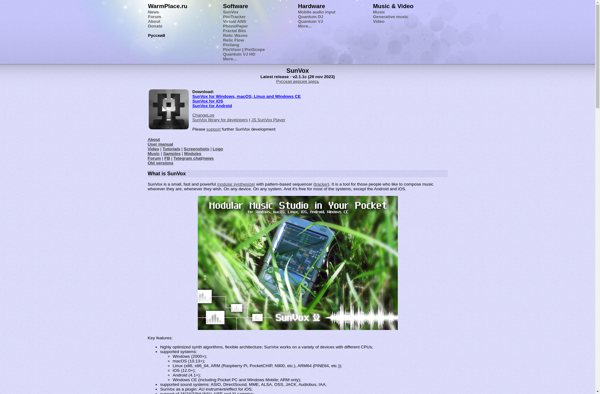
Cabbage Studio
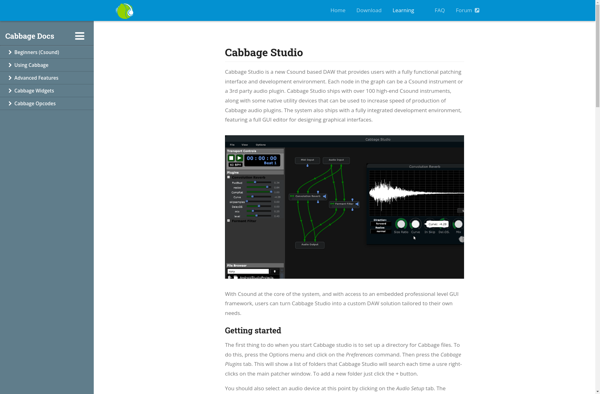
Negasonic
Wavepot
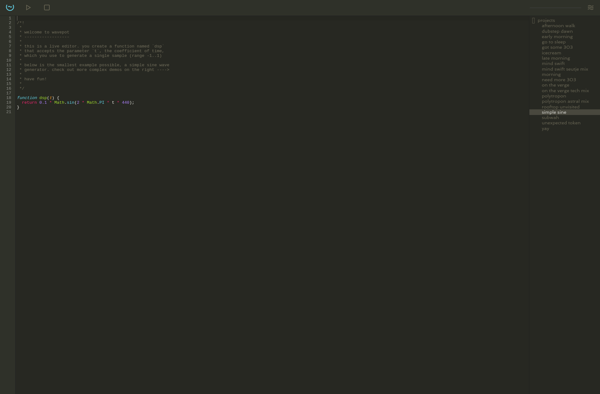
PraxisLIVE
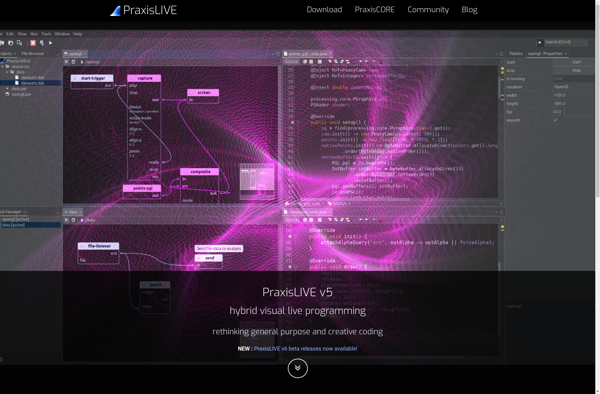
MiRack

Evaluator
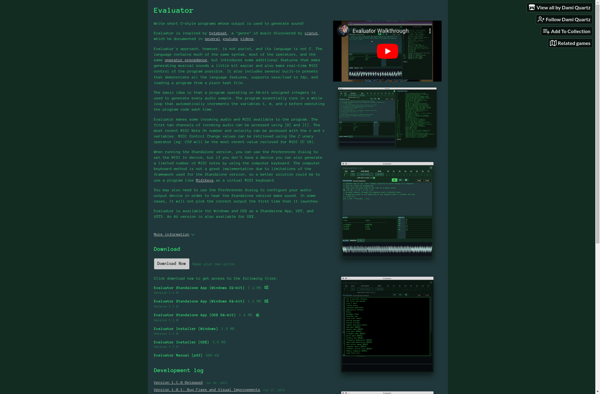
ChucK
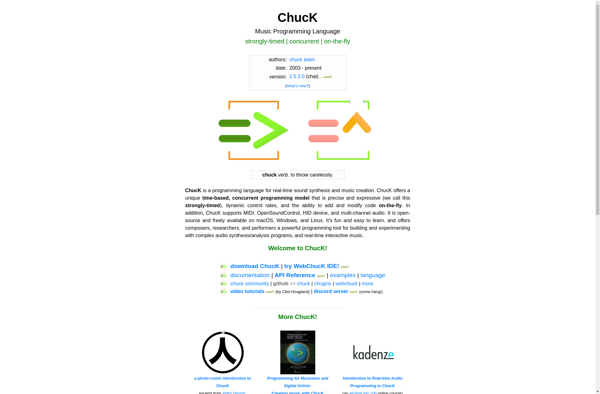
AudioMasher
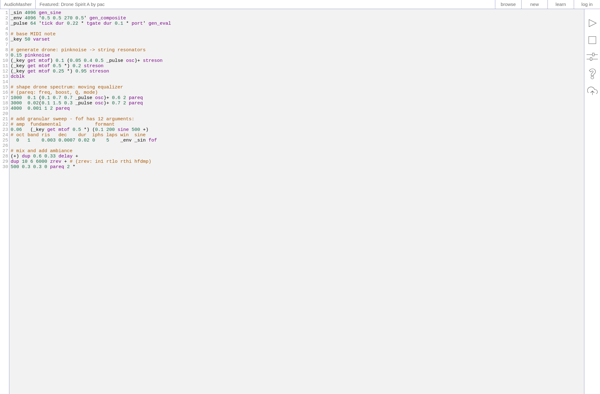
Slang audio programming language

DCubix Twist
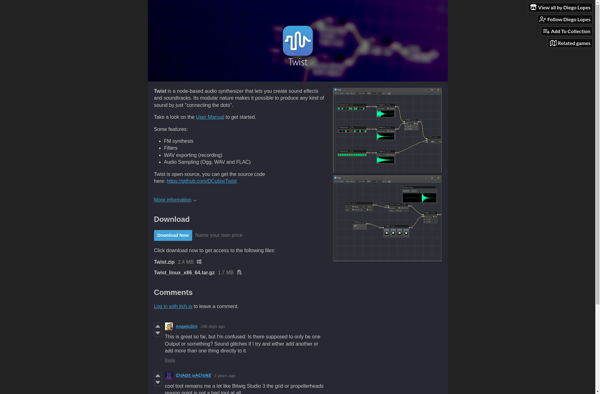
Faust
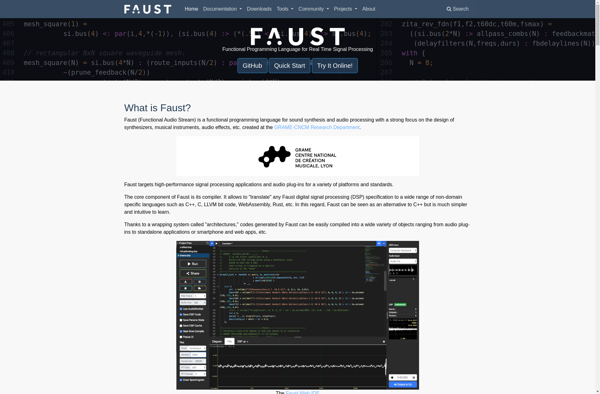
Csound

SOUL programming language
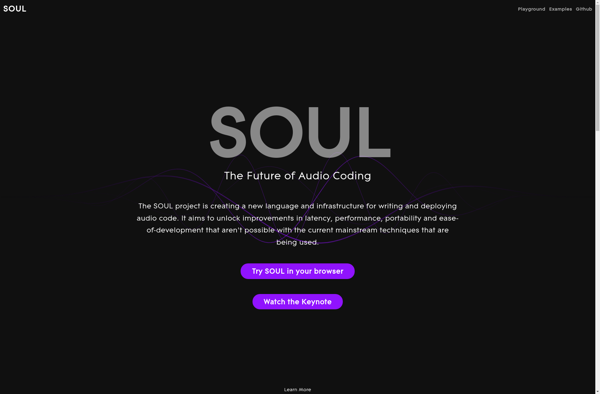
Gibber

Zupiter

Extempore
